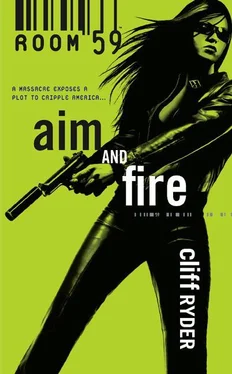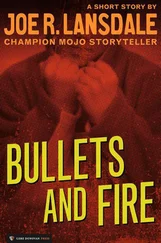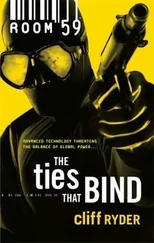Allen had founded Spaceworks with two goals—build a legitimate company with absolutely no ties to any publicly known terrorist operation, and develop the next generation of rocket technology—but for a far more glorious purpose than taking humankind to the stars. His success as a businessman was ironic, since the attack on the United States would come from within, and was being financed, constructed and carried out with backing from the unknowing U.S. government and various venture capitalists.
“I understand that it arrived before me. May I see it?”
Narid asked.
Allen smiled. “Not even here for five minutes and already you’re asking about it. The Barretts arrived safely, as well, glory be to Allah.” Allen went to a locked cabinet, opened it and removed the only item inside, a locked aluminum-sided chest. He brought it out and set it on the desk. “There it is.”
Narid slowly rose and stood over the case. He flipped the latches and opened the top, revealing the inner workings of the ten-kiloton nuclear weapon that an al Qaeda cell had risked their lives to steal from the Russian arms dealer.
It was beautiful.
“We shall fight the pagans all together as they fight us all together, and fight them until there is no more tumult or oppression, and there prevail justice and faith in Allah.”
Narid bowed his head over the case, and when he raised it again, the tears of true belief shone in his eyes. “My friend, we are about to embark on the greatest mission of the jihad our people have ever known. Prepare the installation immediately. In three days, the world will know of our might—and this nation will be forever changed.”
Narid—whose real name was Sepehr al-Kharzi— bowed his head over the case again and intoned his pleasure at seeing his plan coming to fruition, “Allahu Akbar.”
“God is great.”
Tracy’s morning hadn’t started well at all. On her way to work, she had picked up the Washington Post to see a below-the-fold headline—DHS Warns Of Potential Water Contamination Plots.
What the hell—I thought Gilliam said this wasn’t “actionable” enough, she thought. Skimming the article, she found that it delineated exactly what she had laid out in her report. The article painted a chilling picture of what could happen in the event of a water-supply contamination, including the strain on local hospitals and emergency personnel in an area. There were even ominous quotes from Gilliam himself, warning that the DHS “was on top of the situation,” and “already working to strengthen security at waste-treatment plants around the country. This simple plan could incapacitate hundreds, perhaps thousands of people, and we must make sure that won’t happen on our soil.”
Aren’t you the noble mouthpiece, she thought. Of course, there was no mention of the DHS analysis—not that Tracy would have cared. Besides, the tone of the article said it all. He’d sent the report upstream anyway yesterday. But why? And why lie to me about its importance? There could have been any number of reasons, she supposed. Perhaps he didn’t want a leak to be revealed before the article was published. Was there some kind of turf battle at headquarters? Most likely, the top brass was pressuring him for something they could show to the press, and he had seized on this. But she couldn’t understand why he’d told her he was going to delay it, then pass it up the chain right away. Is he just that much of a glory-hogging dick? Maybe they’re pressuring him for something from the department, and he’s parading this out as his own idea, she thought.
After clearing security, Tracy walked to her cubicle to find a triple latte sitting at her desk, and Mark sitting across from her with a copy of the Post in his hands. “Congratulations, you really nailed that one.” His expression, however, was hangdog.
“Thanks, but at my meeting yesterday, Gilliam told me the actual threat level was too low for review, and he was going to sit on that report for the next few months. I don’t understand why he told me that, then rushed it upchannel so fast.”
“So you haven’t heard? Gilliam’s taken the credit for your report internally. He’s saying it was his idea from the start, and that you had expanded it only under his explicit direction.”
“What? That’s totally untrue! I can’t believe he’d stoop to…” Tracy trailed off as she replayed the conversation in her mind. “Oh, my God.”
Not catching her last words or the incredulous look on her face as she sank into her chair, Mark kept talking.
“What I can’t believe is why he thinks you won’t contest his version of events—I mean, by all rights, he should be trumpeting your work on the project all over the place. This is low, even for him.”
“Because he knows I won’t say anything, that’s why.”
Tracy shook her head in despair. “At our meeting yesterday, he said that my app for the fusion center was being approved, and asked if I’d thought about where I wanted to be stationed. He claimed he’d put in a good word for me. Like an idiot, I said I was looking at the Virginia center. If I speak up now, he’ll be sure to kill any chance I have of getting the assignment. There must be something else going on above us that we don’t know about.”
“What, you mean like everything? All I can say for sure is that I can smell the stench of backroom wheeling and dealing from here.” Mark spun around in his chair and woke up his computer. “I’m just sorry you got caught in the cross fire, or whatever’s going down with this.”
“Yeah, me, too—maybe I’ll get lucky, and can work this into that fusion center assignment anyway. After all, he needs me to remain quiet about this, as well, else I could raise a big stink about it.” She raised the steaming cardboard cup of coffee with a malicious grin. “Thanks for the java, by the way.”
“I figured you’d need it, especially after you saw that headline.”
Tracy killed the screensaver on her computer and scrolled through her e-mails. The first one from Gilliam was as terse as ever, making her brow furrow in annoyance.
Send all related data on sewage-contamination analysis to me ASAP.
He hadn’t even bothered to sign it. Now Tracy’s blood began to boil. It’s bad enough that he snakes this report from me—now he’s treating me like his personal secretary, she fumed. She compressed the hundreds of pages of technical analysis she had used to generate her report into a single file and sent it off, wondering all the while why he had requested it, since there was zero chance he’d even be able to comprehend it, much less utilize it in a manner that would make any sense. “I hope he chokes on it,” she muttered.
Still angry, she scanned through her other messages, sorting items that needed immediate attention from the usual stream of interoffice detritus that flowed around the system. One message in particular caught her eye—a summary report and attachments from the El Paso Customs and Border Protection office. She opened it, scanned it quickly and then began researching.
Like many analysts at DHS, there were certain topics Tracy kept track of on a more-than-professional basis, and one of her hobbies was missing nuclear weapons. As soon as she began delving into the data package from Agent Nathaniel Spencer, she thought he was on to something.
Accessing her files on Sepehr al-Kharzi, she reviewed what she had learned about him. He had been attempting to procure nuclear materials for three years prior to his death in a warehouse explosion in Texas. But who could say if it had been his remains recovered from the wreckage—there was no way of testing what was left by fingerprinting or dental records, since nothing was on file for him. This Nathaniel Spencer had been the last one to see the man alive, and his suspicion that the terrorist was actually alive and up to something again was a good start. But if all he had was a gut feeling, that and her own twinge about this wouldn’t buy them a cup of coffee. The problem was that there was no hard evidence except for the e-mail message he had sent, which could very well be someone else using the name as a pseudonym.
Читать дальше
Конец ознакомительного отрывка
Купить книгу












